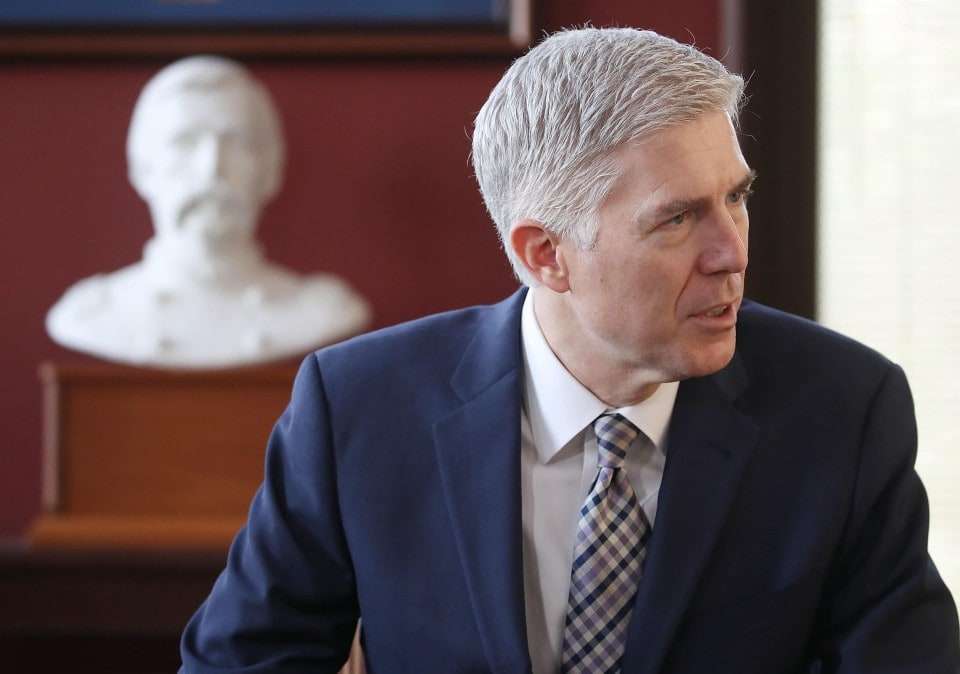The Volokh Conspiracy
Mostly law professors | Sometimes contrarian | Often libertarian | Always independent
Another federal judge questions Chevron deference

Even before he was nominated to the Supreme Court, Judge Neil Gorsuch's criticism of the Chevron doctrine attracted attention. Although some portray his concerns as extreme, he's hardly the only federal judge to have concerns about the way Chevron deference (and related agency deference doctrines) play out in practice.
On Tuesday, in Egan v. Delaware River Port Authority, Judge Kent Jordan of the U.S. Court of Appeals for the 3rd Circuit, wrote a separate concurrence expressing concerns about Chevron and the related doctrine of Auer deference. Here's a taste.
In our ruling today, we are required to defer to the Department of Labor's interpretation of the FMLA. While I concur in the judgment, I write separately to note my discomfort with our reasoning, which is dictated by the regimes of deference adopted by the Supreme Court in Chevron, U.S.A., Inc. v. Natural Resources Defense Council, Inc., 467 U.S. 837 (1984), and Auer v. Robbins, 519 U.S. 452 (1997). The doctrine of deference deserves another look. Chevron and Auer and their like are, with all respect, contrary to the roles assigned to the separate branches of government; they embed perverse incentives in the operations of government; they spread the spores of the ever-expanding administrative state; they require us at times to lay aside fairness and our own best judgment and instead bow to the nation's most powerful litigant, the government, for no reason other than that it is the government. The problems they create are serious and ought to be fixed. . . .
Deference to agencies strengthens the executive branch not only in a particular dispute under judicial review; it tends to the permanent expansion of the administrative state. Even if some in Congress want to rein an agency in, doing so is very difficult because of judicial deference to agency action. Moreover, the Constitutional requirements of bicameralism and presentment (along with the President's veto power), which were intended as a brake on the federal government, being "designed to protect the liberties of the people," are instead, because of Chevron, "veto gates" that make any legislative effort to curtail agency overreach a daunting task.
In short, Chevron "permit[s] executive bureaucracies to swallow huge amounts of core judicial and legislative power and concentrate federal power in a way that seems more than a little difficult to square with the Constitution of the [F]ramers' design." Gutierrez-Brizuela v. Lynch, 834 F.3d 1142, 1149 (10th Cir. 2016) (Gorsuch, J., concurring). . . .
I am not arguing that there is no role in our system of government for deference to administrative agencies. They unquestionably have institutional expertise that allows them to understand some provisions of law "based upon more specialized experience and broader investigations and information than is likely to come to a judge in a particular case." Skidmore v. Swift & Co., 323 U.S. 134, 139 (1944). Such expertise may give agencies and the courts assistance when confronting technical issues. . . . But Supreme Court precedent before Chevron already granted the "rulings, interpretations and opinions" of agencies a level of deference consistent with "the thoroughness evident in [the particular decision under] consideration, the validity of its reasoning, its consistency with earlier and later pronouncements, and all those factors which give it power to persuade." Skidmore, 323 U.S. at 140. That level of deference appropriately takes into account an agency's specialized knowledge while retaining for the judiciary the prerogative "to say what the law is." Marbury, 5 U.S. at 177.
Highly specialized or technical matters are far different, however, than the legal matters on which federal courts are now routinely told, in the name of Chevron, to bow down and obey the executive branch. . . .
It is worth pondering how we arrived at this point. The trajectory is more important than the result in this particular case.
Among other sources, Jordan's opinion cites my co-blogger Randy Barnett's "Our Republican Constitution."


Show Comments (0)